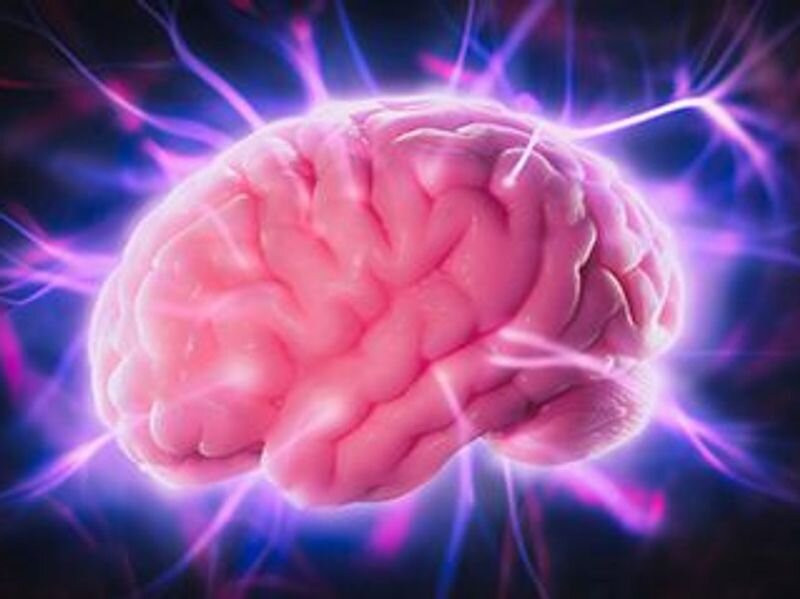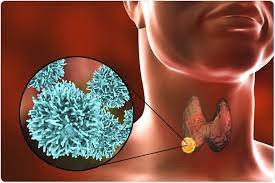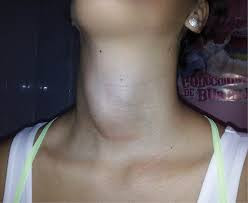Definisi
Ensefalopati Hashimoto adalah sebuah penyakit yang jarang terjadi dan melibatkan kerusakan otak. Penyakit ini dialami oleh 2 orang per 100.000 penduduk. Penyakit ini dinamai “Ensefalopati Hashimoto” karena diduga berkaitan dengan tiroiditis Hashimoto, sebuah penyakit autoimun yang terjadi pada kelenjar tiroid di leher.
Ensefalopati hashimoto memengaruhi otak dan kerjanya. Pada penyakit hashimoto, sel kekebalan tubuh menyerang sel-sel kelenjar tiroid yang memproduksi hormon. Penyakit ini cukup langka terjadi, diperkirakan jumlah kasusnya kurang dari 1000 di Amerika Serikat. Ensefalopati hashimoto banyak terjadi pada orang dewasa dan lebih banyak ditemukan pada wanita dibandingkan pria.
Penyebab
Penyebab ensefalopati Hashimoto belum diketahui secara jelas. Ada hipotesis yang menjelaskan bahwa terdapat vaskulitis autoimun (peradangan pada pembuluh darah karena reaksi imun tubuh) yang menyerang antigen kelenjar tiroid dan ditemukan di otak. Meskipun ada kasus dilaporkan mengenai ensefalopati Hashimoto, penyebabnya belum diketahui sama sekali.
Tiroiditis Hashimoto adalah kondisi peradangan kelenjar tiroid yang kronis karena sel tiroid dihancurkan oleh sel kekebalan tubuh. Pada ensefalopati, kondisi peradangan tiroid menyebabkan kerusakan otak sehingga kerja otak pun terganggu. Pada tahun 1991, terdapat 5 pasien yang dilaporkan memiliki ensefalopati dan tiroiditis Hashimoto. Pasien-pasien tersebut memiliki penurunan kesadaran dan kejang. Hasil laboratorium menunjukkan adanya antibodi (protein yang berfungsi melindungi diri dari penyakit) terhadap sel-sel tiroid. Penanganannya pun sukses dengan steroid, obat-obatan untuk menurunkan respon peradangan.
Faktor Risiko
Ensefalopati Hashimoto hanya terjadi pada 2 orang dari 100.000 penduduk, menandakan bahwa kondisi ini sangat jarang terjadi. Faktor risiko penyakit ini adalah adanya penyakit autoimun seperti tiroiditis Hashimoto. Penyakit autoimun ini menyebabkan peradangan pada sel-sel tiroid, sehingga terjadi penurunan jumlah kadar hormon tiroid (hipotiroid) di tubuh.
Usia rata-rata pasien yang mengalami ensefalopati Hashimoto adalah sekitar 40-55 tahun. Wanita didiagnosis dengan penyakit ini empat kali lebih banyak daripada pria.
Gejala
Ensefalopati Hashimoto memengaruhi fungsi otak, sehingga penyakit ini dapat menyebabkan penurunan fungsi kognitif dan kesadaran. Gejalanya juga bisa berbeda pada setiap orang. Gejala penyakit bisa ringan sampai berat, dan beberapa pasien bisa memiliki lebih banyak gejala dari pasien lainnya.
Gejala yang paling sering timbul dari ensefalopati Hashimoto adalah:
- Sakit kepala.
- Kebingungan.
- Episode mirip stroke.
- Gangguan neurologis dan kognitif.
- Ataksia (kontrol otot menjadi buruk, terjadi penurunan koordinasi otot yang menyebabkan gangguan gerakan dan keseimbangan).
- Kejang yang resisten dengan obat antikejang.
Selain gejala di atas, bisa timbul gejala lain seperti:
- Perubahan perilaku dan ketidakstabilan emosi.
- Masalah bicara.
- Penurunan konsentrasi dan perhatian.
- Halusinasi visual dan delusi paranoid.
- Refleks yang beraksi berlebihan.
- Iskemia otak (penurunan aliran darah ke bagian otak tertentu).
- Penurunan kesadaran.
- Tremor (bagian tubuh bergetar).
- Disorientasi atau ketidakmampuan mengenali lingkungan sekitar.
- Masalah konsentrasi dan memori.
- Mioklonus, yaitu kedutan atau kaku otot yang terjadi secara tiba-tiba.
Diagnosis
Penegakan diagnosis ensefalopati Hashimoto dilakukan berdasarkan tanda dan gejala yang dirasakan serta ditunjukkan pasien, dan juga ditunjang oleh adanya penemuan antibodi terhadap sel-sel tiroid.
Wawancara Medis
Dokter akan bertanya riwayat medis pasien secara lengkap. Pasien dapat melaporkan riwayat masalah tiroiditis Hashimoto atau masalah tiroid lainnya. Jarang sekali pasien memiliki kelanjar tiroid yang sehat dan tidak bermasalah. Pasien juga dapat mengeluhkan keluhan yang tidak spesifik, misalnya lelah, Keluhan lainnya dapat berupa gejala saraf seperti ataksia, yaitu sekelompok kelainan yang memengaruhi koordinasi, keseimbangan, dan bicara. Pasien juga dapat mengalami gejala pada mata yang tidak spesifik, seperti pandangan ganda.
Pemeriksaan Fisik
Dokter yang melakukan pemeriksaan fisik dapat menemukan adanya tanda ataksia pada cara berjalan, namun juga dapat tidak menemukan gejala sama sekali. Pemeriksaan mata secara lengkap juga perlu dilakukan bila ada keluhan terkait mata dan penglihatan. Pada pemeriksaan luar, pasien dapat menunjukkan tanda-tanda mata yang terlalu melotot atau kelopak mata jatuh.
Pemeriksaan Penunjang
Biasanya, pemeriksaan yang mengarahkan ke ensefalopati Hashimoto adalah pemeriksaan laboratorium dan pencitraan. Dokter akan menyarankan untuk dilakukan pemeriksaan terkait hormon tiroid serta kadar antibodi di dalam tubuh. Dokter juga dapat melakukan pemeriksaan cairan serebrospinal (di dekat otak dan sumsum tulang belakang). Sementara itu, pemeriksaan pencitraan yang biasa dilakukan adalah magnetic resonance imaging (MRI), berperan untuk melihat bila ada masalah mata atau gangguan pada otak kecil bila pasien memperlihatkan tampilan klinis ataksia.
Tata Laksana
Tata laksana ensefalopati adalah penanganan dengan obat-obatan seperti steroid. Steroid biasanya diberikan selama setahun untuk mencapai hasil yang baik. Sekitar 98% pasien yang ditangani dengan steroid membaik tanpa meninggalkan gejala sisa.
Pengobatan lain untuk ensefalopati Hashimoto adalah dengan imunoglobulin intravena (intravenous immunoglobulin, IVIG), yaitu antibodi dari orang sehat yang dimasukkan lewat darah untuk menyerang kelebihan antibodi di dalam tubuh. Selain itu, pertukaran plasma juga dapat dilakukan sebagai terapi lini lanjutan. Pertukaran plasma (plasma exchange, PE) dilakukan dengan mengeluarkan plasma dari tubuh Anda dan menggantinya dengan plasma yang sehat untuk menurunkan jumlah antibodi terhadap sel-sel tiroid.
Komplikasi
Seperti banyak penyakit autoimun lainnya, terapi bertujuan untuk meringankan gejala yang dialami pasien. Kemungkinan pasien sembuh sangat baik. Setelah mendapatkan terapi awal, biasanya penyakit ini akan mengalami remisi atau sembuh sementara. Beberapa pasien bahkan dapat tidak melanjutkan terapi obat hingga bertahun-tahun. Penyakit ini memiliki risiko relaps atau penyakit muncul kembali. Namun, penelitian ini menunjukkan bahwa hanya 16% penderita dapat mengalami gejala berulang. Biasanya, pasien-pasien ini merupakan pasien yang mengalami ensefalopati Hashimoto hingga mencapai koma.
Pencegahan
Pencegahan sulit dilakukan karena kejadian ensefalopati Hashimoto sangat jarang, bahkan pada penderita tiroiditis Hashimoto sekalipun. Pasien tiroiditis Hashimoto disarankan untuk rutin kontrol ke dokter agar penyakitnya bisa terkontrol dengan baik dan tidak menimbulkan gangguan pada otak.
Kapan Harus ke Dokter?
Penyakit Hashimoto bisa berkembang perlahan selama beberapa waktu. Tiroiditis Hashimoto bisa menyebabkan penurunan produksi hormon yang bisa menimbulkan gejala seperti:
- Sensitif dengan suhu dingin.
- Semakin sering mengantuk.
- Lemas dan menjadi lamban.
- Kelemahan otot, nyeri atau kaku otot.
- Kulit kering.
- Nyeri dan kaku sendi.
- Rambut rontok.
- Pembengkakan kelenjar tiroid di leher, dll.
Anda disarankan untuk berkunjung ke dokter jika Anda merasakan adanya gejala-gejala di atas, apalagi bila keluhan sudah mengganggu aktivitas. Ensefalopati Hashimoto memang dapat membaik dengan sendirinya, namun pengetahuan mengenai tipe penyakit atau kemungkinan penyakit lainnya dapat membantu kesembuhan lebih cepat.
Ensefalopati memiliki penyebab lainnya seperti kurangnya aliran darah ke otak, peradangan, infeksi, trauma, kanker, dan sebagainya. Pada kasus kompleks, tidak ada alat diagnostik khusus yang dapat menunjang diagnosis ensefalopati Hashimoto.
Selain itu, Anda dapat berkunjung ke dokter apabila Anda memerlukan pertolongan lebih lanjut. Anda juga dapat berkunjung ke dokter untuk konsultasi apabila Anda mengalami perubahan suasana perasaan, memiliki gejala depresi, atau muncul ide untuk mengakhiri hidup.
Mau tahu informasi seputar penyakit lainnya? Cek di sini, ya!
- dr Hanifa Rahma
Hashimoto encephalopathy - About the Disease. Genetic and Rare Diseases Information Center. (2022). Retrieved 2 October 2022, from https://rarediseases.info.nih.gov/diseases/8570/hashimoto-encephalopathy.
Hashimoto's disease - Symptoms and causes. Mayo Clinic. (2022). Retrieved 2 October 2022, from https://www.mayoclinic.org/diseases-conditions/hashimotos-disease/symptoms-causes/syc-20351855.
Kanakamedala, A., & Othman, B. (2022). Hashimoto Encephalopathy - EyeWiki. Eyewiki.aao.org. Retrieved 2 October 2022, from https://eyewiki.aao.org/Hashimoto_Encephalopathy.
Shomon, M., & Waldman, L. (2021). How Hashimoto's Encephalopathy Is Diagnosed. Verywell Health. Retrieved 2 October 2022, from https://www.verywellhealth.com/hashimotos-encephalopathy-overview-3231700.












